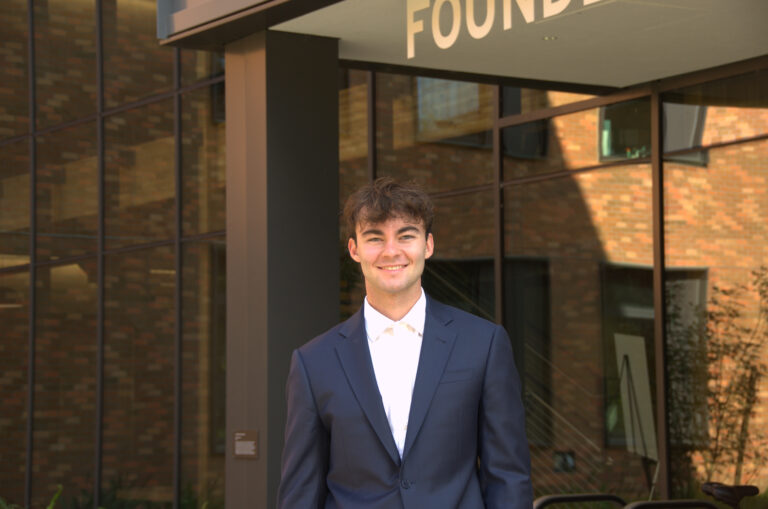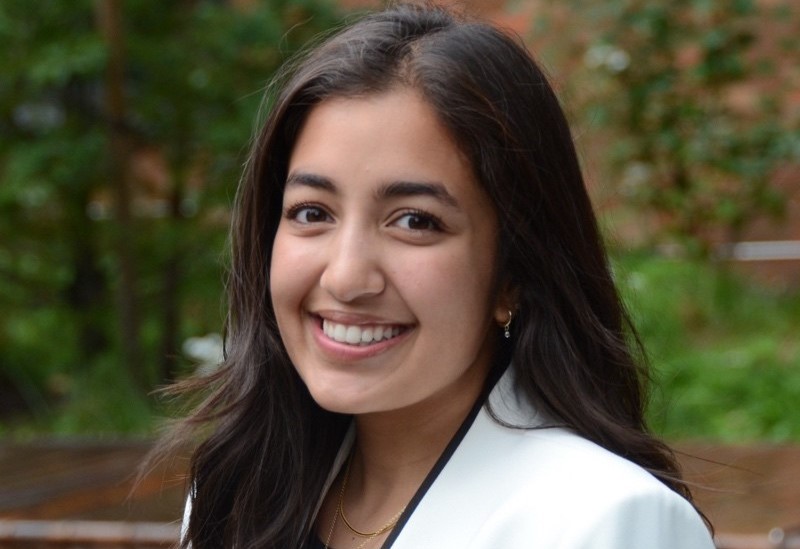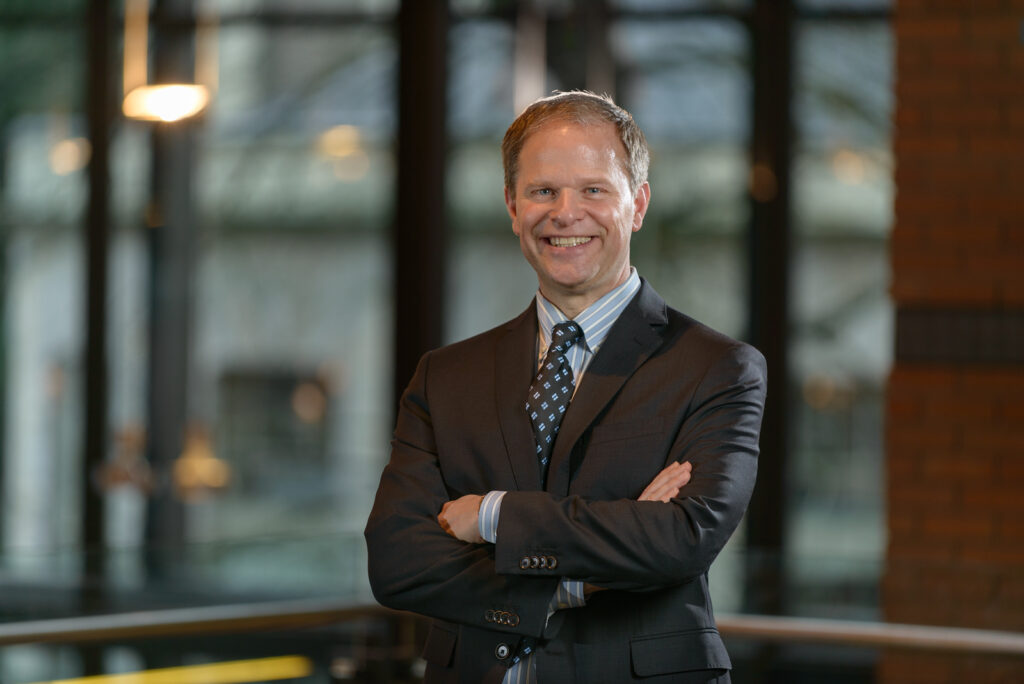Consulting Across Continents: Foster Students Delve Into Australian Sports
How a partnership with Australian start-ups is shaping the future of sports tech—and UW students’ careers
The University of Washington Consulting Association is going global. Members of this student organization, which prepares them for careers in consulting, have forged a unique partnership with the Australian Sports Technologies Network (ASTN), an incubator supporting Australian sports technology start-up companies.
Consulting Association students, including the Foster School of Business undergraduates, work in teams on quarter-long engagements to provide business intelligence to client companies. Their deliverables include market sizing, competitive landscape analysis, and actionable business strategies.

Mason Ciolli is a senior at the Foster School. He led a team that analyzed regional differences in sports viewership and marketing opportunities across the United States to help ASTN member companies identify the most promising areas for entering the U.S. market.
“It was an incredible opportunity,” Ciolli reflects. “As a student, collaborating with major Australian sports companies was a transformative experience. That’s not something I could find anywhere else.” Ciolli credits his participation in the program with preparing him for his current role at Bain and Company by providing him with experience in client presentations and collaborating with fellow team members.
A mutually beneficial consulting partnership
The Association’s partnership with ASTN is mutually beneficial by design. Dr. Martin Schlegel, Executive Chairman of the ASTN Board, values the opportunity to mentor students. But he emphasizes that their work directly applies to real-world business strategies.
“The project with UW Foster students stands out as Foster students did not only apply their book knowledge but were able to contribute with their lived experiences,” he says. “Such real-world connection elevates recommendations compiled to a more meaningful and actionable outcome for ASTN and participating businesses.”

As president of the Consulting Association, Preyal Garg a senior at Foster, oversaw one of the first collaborations with ASTN. Her team’s work included analyzing how technologies related to fan engagement and wearables developed in Australia would apply to consumers in the United States.
Garg and her fellow team members collaborated closely with their clients. They adjusted their schedules to accommodate the time difference and held regular meetings in which they presented their findings, fielded questions, and decided how to proceed best. Garg describes the partnership as productive and enriching.
Cross-continental real-time collaboration
“We had a lot of autonomy with the project,” she recalls. “It was up to determine which databases to look at and what resources to pull from.” Her team would wed their own research with information provided by the clients, including real-time collaboration at times. “If we presented a data set during a call and talked through it, they might have an idea for further study. And we would do that as well.”

Ciolli and Garg were keenly aware that as students providing guidance to seasoned business professionals from another country. They needed to be as well-prepared and professional as possible. The students overcame any questions of their credibility with well-researched and relevant information sets.
“There can be some hesitancy in working with a student organization,” Garg acknowledges. “The best way to overcome that is to be data and source-driven. We would lead with numbers on our slides and have the sources listed to help build trust.”
Consulting Association provides valuable and actionable insight
The team’s hard work has paid off. Schlegel says one of the hazards of consultancy services is that their work often ends “in a desk drawer” rather than put into practice. That has not been the case in this partnership, in which several member companies in ASTN are actively planning to launch projects informed by the UW student research.
“UW Foster students across all projects have demonstrated a great interest, enthusiasm and professionalism when working with ASTN and its member companies,” Schlegel recounts. “In particular, their motivation to learn about the sports tech sector and apply their personal experiences in addition to their academic knowledge has proven very valuable.”

The collaboration between UW and ASTN has a serendipitous origin. Professor Tod Bergstrom leads an annual Foster Exploration Seminar to Australia. He accompanies students to various companies where they meet and learn from executives from multiple industries. Those trips led to a friendship with Schlegel, who came to visit the UW campus in 2022. That evening, Bergstrom happened to be judging a case competition in an area in which Schlegel had expertise. Schlegel accompanied Bergstrom to the event and was so impressed with UW students that he wanted to explore ways to collaborate further.
“Martin happened to be in the right place at the right time to meet these students,” says Bergstrom. “And today, it’s a great benefit to these Australian sports technology start-ups to get free consulting from very bright students and for the students to capitalize on what they are learning in class.”

Bergstrom leads an annual trip to Australia which provides an opportunity for students to meet Schlegel in person.
The partnership is slated to continue with a new slate of projects and students in 2025. Ciolli urges future Consulting Assocation members to seize the opportunity. “10 out of 10,” he says of his experience. “It’s a significant amount of work but very enjoyable. I can’t recommend it highly enough.”
